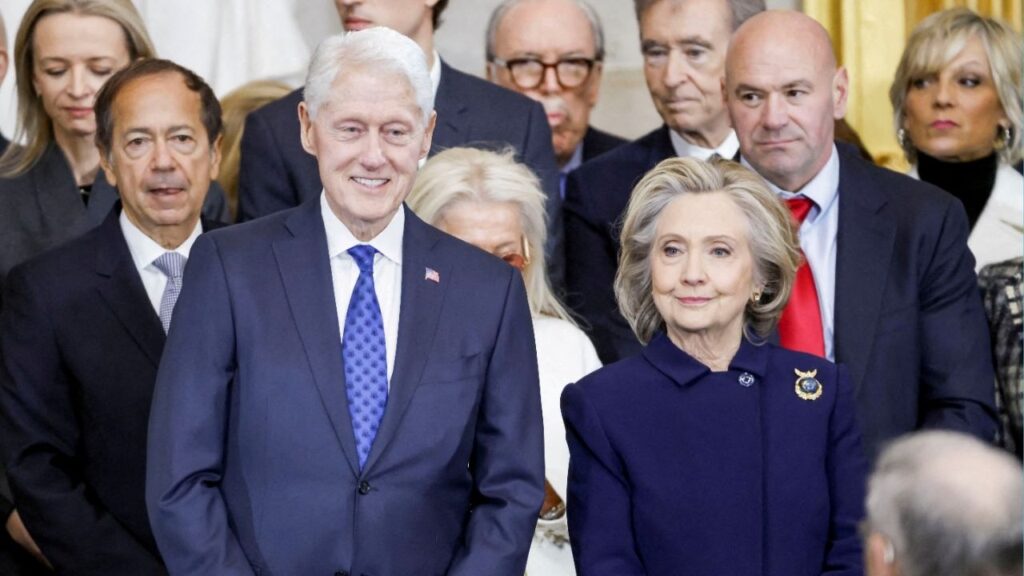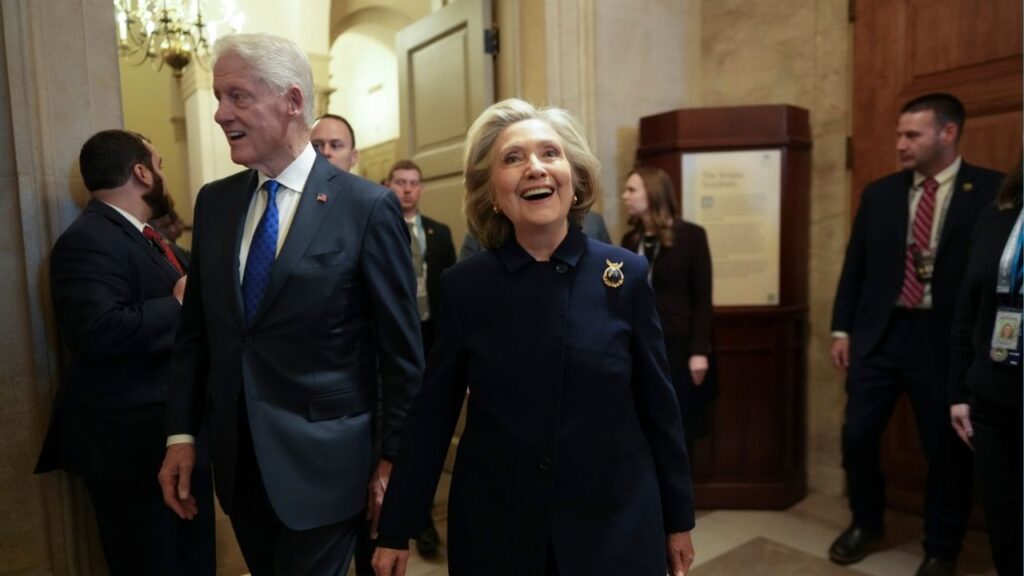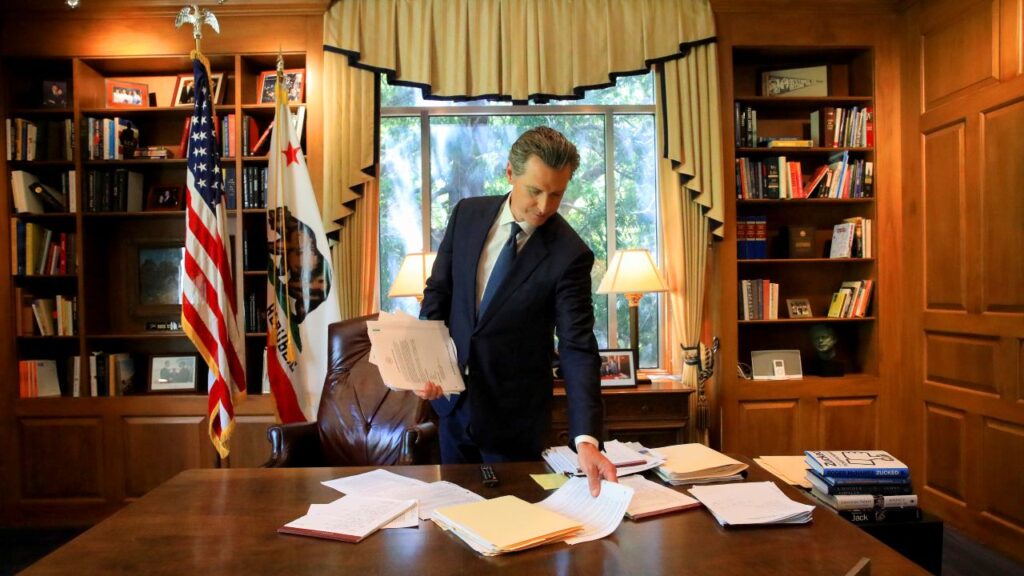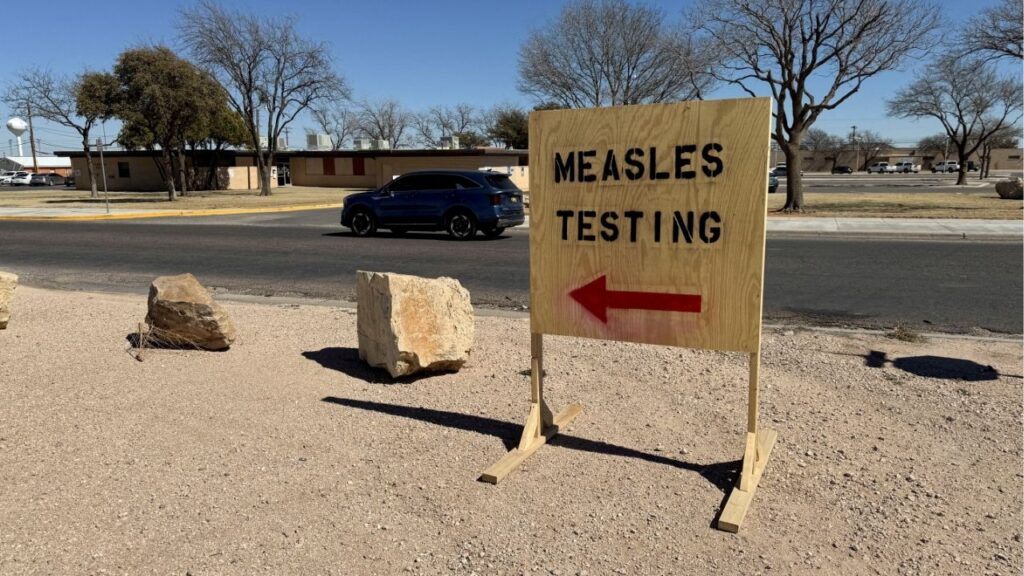Robert F. Kennedy Jr. speaks during a campaign rally for former President Donald Trump, the Republican presidential nominee, at Madison Square Garden in New York, Oct. 27, 2024. President-elect Donald Trump has encouraged Kennedy to “go wild on health,” but has not made clear what role he will play. (Hiroko Masuike/The New York Times)

- RFK Jr.'s influence in the new administration raises public health concerns, especially around vaccine hesitancy.
- Trump plans to empower Kennedy to tackle regulatory changes, with a focus on “medical freedom” and “Make America Healthy Again.”
- Kennedy pledges sweeping health reforms, including restricting FDA powers and cutting SNAP benefits for processed foods.
Share
|
Getting your Trinity Audio player ready...
|
When 12,000 public health professionals gathered in Minneapolis last week for the annual meeting of the American Public Health Association, Dr. Jerome Adams, who served as surgeon general in the first administration of President-elect Donald Trump, issued a pointed warning about Robert F. Kennedy Jr.
“If RFK has a significant influence on the next administration, that could further erode people’s willingness to get up to date with recommended vaccines,” Adams said. “I am worried about the impact that could have on our nation’s health, on our nation’s economy, on our global security.”
Kennedy Is a Vocal Skeptic
Now, Kennedy, a vocal skeptic of vaccines, is in a position to have significant influence over a broad range of policy. Trump’s sweeping electoral victory, with Kennedy at his side, is — in the eyes of their supporters — not only a mandate but also a repudiation of the public health establishment that has long kept Kennedy at bay.
As an independent presidential candidate and as a surrogate for Trump, Kennedy pledged to upend the nation’s agriculture system and public health bureaucracy, effectively gutting whole swaths of the regulatory state, under the rubric of rooting out “cronyism” and corruption.
After Trump was first elected in 2016, Kennedy told reporters that Trump promised to let him chair a vaccine commission, but it never came to pass. Now, Kennedy has a much stronger hand, having rallied his followers behind Trump. The president-elect has indicated that Kennedy will play a role in his new administration and recently said he would let Kennedy “go wild on health,” but he has not been specific about what that means.
Some have speculated that Trump will make him a “health czar” inside the White House, to guide the president on public health matters; a person familiar with the transition said Kennedy was at Mar-a-Lago on Wednesday and spoke with Trump insiders about the public health agenda.
Kennedy’s worldview is embodied in two of his most frequent refrains: “There is nothing more profitable for much of the health care system than a sick child” and “Public health agencies have become sock puppets for the industries they are supposed to regulate.”
Kennedy Could Be Many Roles in the Trump Administration
Now that Republicans will control the Senate, Kennedy could theoretically win confirmation for any one of a number of top health jobs: secretary of Health and Human Services, commissioner of the Food and Drug Administration or director of the Centers for Disease Control and Prevention.
“There is a real mandate victory here, with many millions of people who are first-time Trump voters,” said Calley Means, a health care entrepreneur who has been an adviser to Kennedy and who was instrumental in connecting him to Trump. “It is a true mandate to take on broken health care institutions, and to deliver the change.”
Kennedy did not respond to requests for comment. In an interview with NPR on Wednesday, he said his role in the new administration had not yet been decided. But he said Trump had given him three instructions: to rid regulatory agencies of “the corruption and the conflicts,” to “return the agencies to the gold standard” of “empirically based, evidence-based science and medicine” and to “end the chronic disease epidemic with measurable impacts” within two years.
As for vaccines, he said, “We are not going to take vaccines away from anybody.” He said he wanted Americans to be able to make “informed choices” about vaccination — an idea that worries public health experts, who say that school vaccination requirements are especially important because vaccines are most effective in slowing the spread of infectious disease when entire communities are vaccinated.
As a presidential candidate, Kennedy moved away from his focus on vaccines to a broader theme: Americans, he argued, are suffering from an epidemic of chronic disease. And when he aligned himself with Trump, that theme got a name: “Make America Healthy Again.” It quickly caught on.
Today, he is the undisputed leader of a burgeoning “medical freedom” movement that marries fierce resistance to public health measures and deep suspicion of industry with an embrace of alternative medicine and natural foods. In a recent opinion essay in The Wall Street Journal, Kennedy called for half of the budget of the National Institutes of Health to be devoted to “preventive, alternative and holistic approaches to health.”
Kennedy, an environmental lawyer and a scion of one of America’s most storied Democratic families, has no medical or public health degree. His work on the environment, and in particular mercury in waterways, led him to question the safety of vaccines, some of which contained a mercury-based preservative, thimerosal, until manufacturers removed it in 2001 at the CDC’s urging.
Like Trump, Kennedy has in the past blamed childhood vaccines for autism — a discredited theory that has been repudiated by more than a dozen peer-reviewed scientific studies in multiple countries. He has decried childhood vaccination schedules and coronavirus vaccine mandates as government overreach and as a way to enrich drugmakers.
Kennedy Shares Plans on FDA
He forecast his plans for the FDA on social media two weeks ago.
“FDA’s war on public health is about to end,” Kennedy wrote. “This includes its aggressive suppression of psychedelics, peptides, stem cells, raw milk, hyperbaric therapies, chelating compounds, ivermectin, hydroxychloroquine, vitamins, clean foods, sunshine, exercise, nutraceuticals and anything else that advances human health and can’t be patented by Pharma. If you work for the FDA and are part of this corrupt system, I have two messages for you: 1. Preserve your records, and 2. Pack your bags.”
Experts in public health fear that even if Kennedy is not appointed to run a specific agency, his public assault on vaccines will depress vaccination rates.
Kennedy has also pledged that Trump will press to eliminate fluoride from the water supply, a promise Kennedy reiterated on NPR on Wednesday. Along with vaccines, the CDC lists fluoridation, which prevents tooth decay, as one of the “10 great public health achievements” of the 20th century.
“I think it’s fair to say we’re in uncharted territory,” said Michael T. Osterholm, who directs the Center for Infectious Disease Research and Policy at the University of Minnesota and has advised presidents of both parties dating back to Ronald Reagan. “In my 50 years in the business, I never had to encounter, even in the first Trump administration, a callous disregard for science and facts.”
Kennedy has also taken aim at the food and agriculture industries. In his essay for The Wall Street Journal, he laid out proposals for a second Trump administration that included scaling back pesticide use and reforming subsidies that make corn and soybeans artificially cheap.
And he called on Trump to “stop allowing beneficiaries of the Supplemental Nutrition Assistance Program to use their food stamps to buy soda or processed foods.” Last year, about 42 million Americans received SNAP benefits each month, federal data shows.
Kennedy also appears to have endorsed a proposal to abandon the current insurance-based system of health coverage in favor of individual health savings accounts — a plan that Republicans have proposed as an alternative to the program popularly known as Obamacare. When Rep. Chip Roy, R-Texas, proposed the idea Monday as part of an opinion essay in The Hill, Kennedy wrote on social media that Roy “hits the nail squarely on the head.”
–
This article originally appeared in The New York Times.
By Sheryl Gay Stolberg and Rebecca Davis O’Brien/Hiroko Masuike
c. 2024 The New York Times Company



















